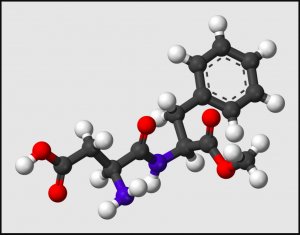Aspartame is an artificial sweetener that replaces sugar in several food products. Ever since James M. Schlatter discovered it in 1965, the public has had ongoing questions about whether consumption poses a potential threat to our health. The low-calorie sugar substitute is appealing with diabetes cases in Canada rising to 8.9% of the population. Canada approved the usage of aspartame in 1981, so why is there still a controversy?

Equal Sweetener Source: 怡口糖 by SoQ錫濛譙
People have accused aspartame of causing health issues related to toxicity, diabetes, cancer, seizures, and allergies. The reality is that most of these speculations are unsupported, and the government of Canada had to examine numerous research studies to allow Aspartame’s approval in the first place.
Haighton et al. reviewed past cancer epidemiology investigations that claimed to present evidence for these suspicions. After evaluating them, they concluded that the results did not give reasons to believe there was a correlation between aspartame and cancer risk. Considerations going into this decision included how many experiments used diet soft drinks as their main sample source, which contain other compounds and sweeteners besides aspartame.

Aspartame Structure Source: Benjah-bmm27
However, there are health risks that have been discovered in regards to aspartame. It metabolizes into methanol and aspartic acid, as well as phenylalanine, a compound that negatively impacts patients with the disorder phenylketonuria. Therefore companies are required to label products to caution people of phenylalanine content.
The uncertainty around aspartame encourages the need for continued studies to identify the definitive effects of long-term aspartame consumption. It will keep Canada informed to lower the discrepancy between the public view and make sure that the acceptable daily intake, currently 40 milligrams per kilogram body weight, is up to date with health safety precautions.
For now it seems aspartame is here to stay, and we can continue to enjoy the sweetener.

I’m not familiar with aspartame and I’ve never heard of this controversy before, so I think it’s great that you provided a brief summary and history of the sweetener. Your writing was clear and the jargon used was explained well, so it is easy to understand even for general audiences and people like me who know nothing about aspartame. I think the journalistic style was used well, although I recommend breaking up your paragraphs more. Overall I think your post effectively informed about aspartame and I feel relieved that it doesn’t seem to be dangerous, but I agree that further studies won’t hurt.